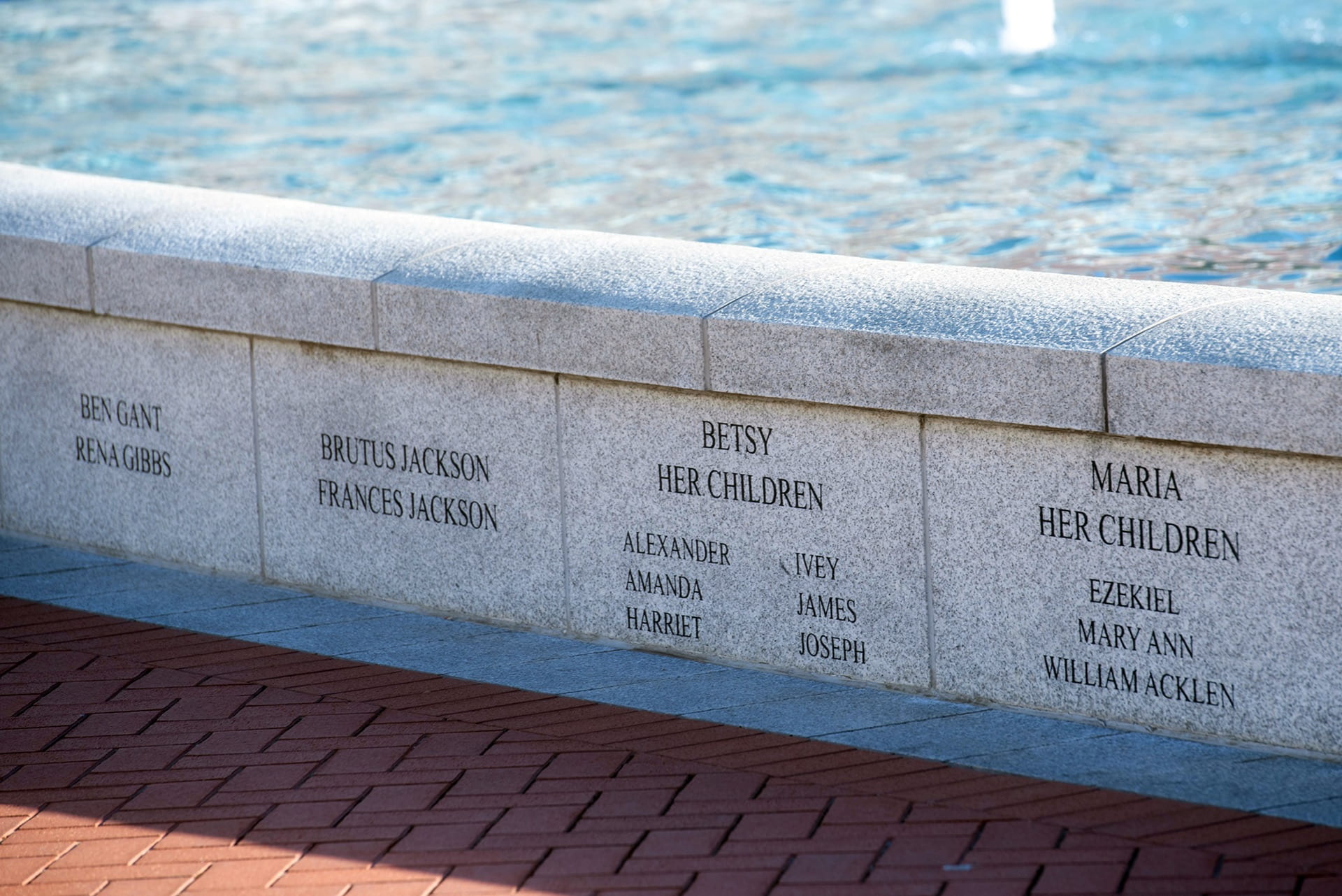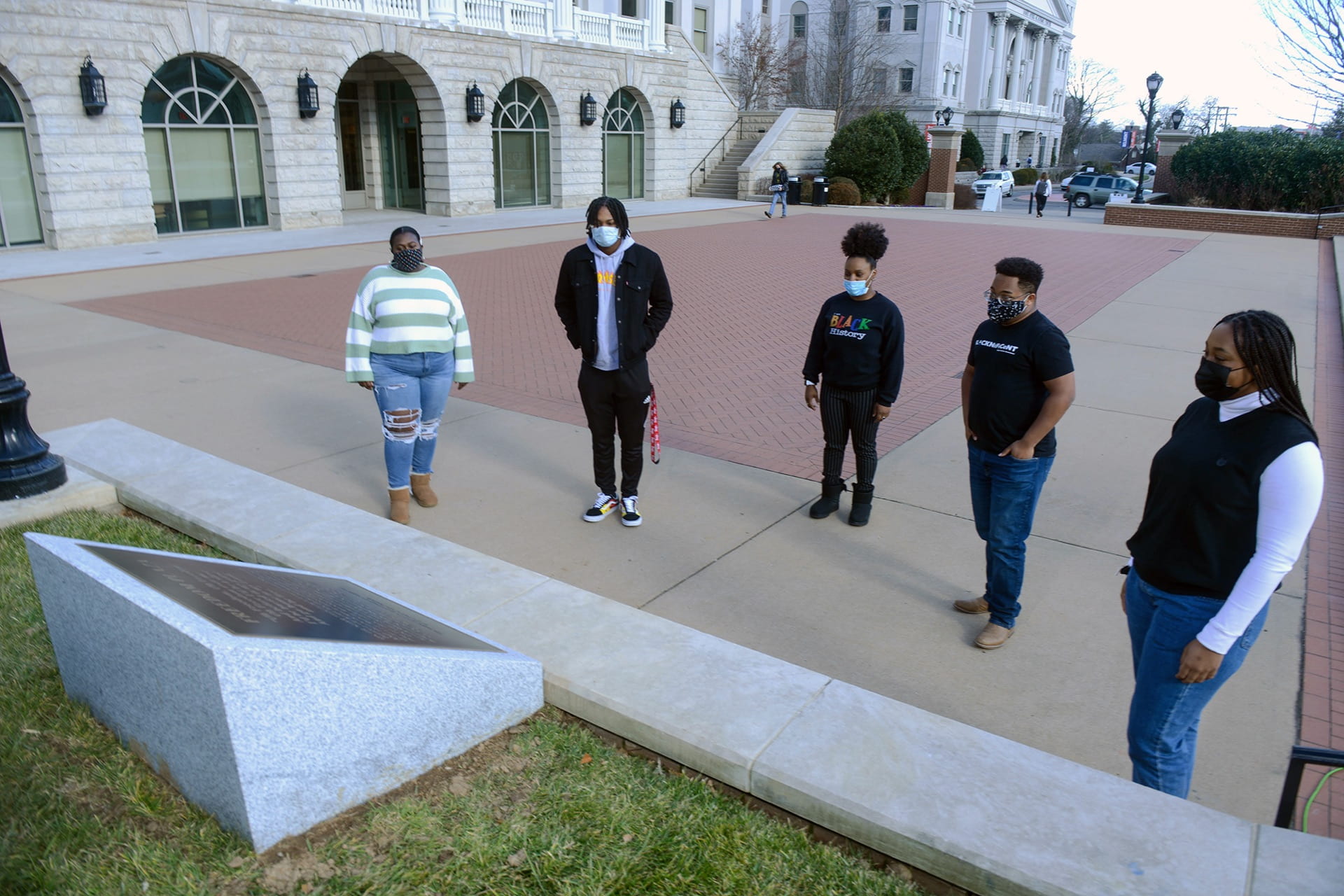
As part of Belmont’s MLK Day activities, the University dedicated Freedom Plaza, a new memorial to honor the enslaved workers who helped build the original Acklen estate.
This year’s commemoration of Martin Luther King, Jr.’s birthday took on special significance as Belmont dedicated the area surrounding an iconic campus fountain as Freedom Plaza. The naming is part of an effort to honor the lives of the enslaved individuals who labored on the estate owned by Joseph and Adelicia Acklen more than 170 years ago, prior to the establishment of Belmont College.
The known names of the enslaved laborers are now inscribed on the fountain, and a nearby plaque features the lyrics to the “Oh Freedom” post-Civil War spiritual. The song, which expresses both the dignity of the formerly enslaved and their yearning for release after emancipation, was performed for the dedication ceremony by Professor of Music and Director of Choral Activities Dr. Jeffery Ames.


Last summer’s incidents of racial violence and discrimination inspired multiple campus conversations, and a number of action steps were identified to further promote a campus culture of inclusion and equity. A Faculty Senate committee conceived the idea for the plaque and fountain inscription, and then all employees were invited to financially support the creation of the memorial, more than tripling the original $10,000 fundraising goal.
Associate Professor of Pharmacy Dr. Anthony Blash, who served on the memorial subcommittee, said, “As your eyes fall on the names of the enslaved persons that toiled on these lands and to those whose names are known only to God, I ask that you remember that no part of what we do as a University is immune from the forces of oppression, objectification and dehumanization, and that we pledge to identify and challenge these forces as a community.”
